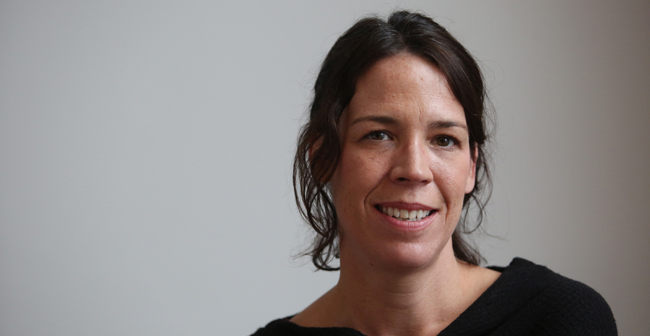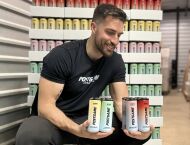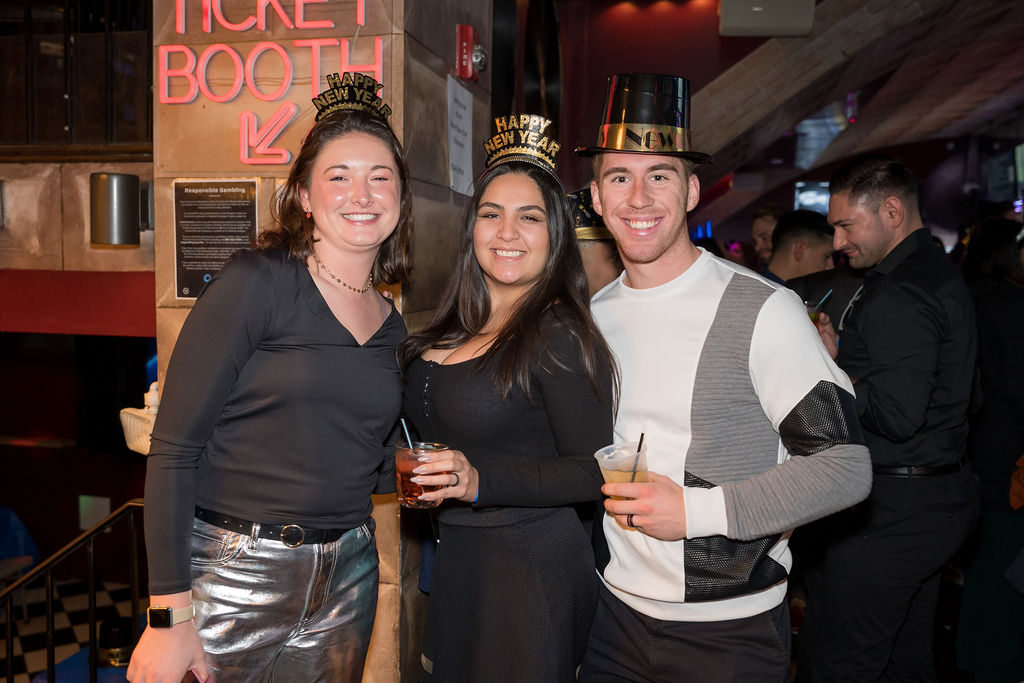Culture

Binge-Worthy Podcasts: Serial and S-Town’s Julie Snyder
May 1, 2017 @ 12:00am
If you aren’t one of the millions of listeners who has tuned in to or downloaded NPR podcast Serial, chances are you’ve heard of the Peabody Award-winning show that ushered in a new era of investigative journalism. Our country became fascinated with the podcast’s first season in 2014, centered on a 1999 murder case in Baltimore, and stayed riveted through the second season in 2015, following a U.S. soldier’s military desertion. Now with plans for a third season in the works, co-creators and former This American Life producers Sarah Koenig and Julie Snyder are speaking with live audiences about the behind-the-scenes experience of creating their wildly popular podcast.
Before the talented minds behind the binge-worthy podcast stop by Strathmore on May 11, we made sure to nab an interview with Snyder. Not only was she with This American Life for 18 years before joining forces with Koenig to create Serial, she’s the executive producer of brand new podcast S-Town, released at the end of March. S-Town offers a different flavor of investigative journalism, focusing at first on a murder mystery and then veering into unexpected territory. We caught up with Snyder about this unique form of storytelling, what she’s learned after two decades as a producer, what she hopes to work on next and much more.
On Tap: What was the transition like from telling multiple people’s stories on a weekly basis on This American Life to diving into one person’s story for a much longer period of time with Serial and S-Town?
Julie Snyder: It’s funny because before I started doing this, I would meet people who were documentary filmmakers and I’d ask them, “So, how long have you been working on the story?” and they’d be like, “Well, it’s been like eight years.” [Laughs] I just always felt like I did not have the attention span for that. I am way too much of a dilettante. It’s definitely shown me that you really want to be into and committed to a story because you’re going to be living in it for so long.
I’m learning a lot about story selection and pacing, but I’m also looking a lot at television shows and novels and personal essays, and trying to get a sense of longer-form narrative journalism in other mediums and how those have been structured because I do feel like I need more guideposts while I’m trying to put together these stories.
OT: How do you tackle that sense of responsibility for ensuring that your subjects’ stories are being told accurately and objectively, knowing that in some cases, your podcast might be the first time their story is being shared with the public?
JS: It’s something we’ve been doing for so long. And I think in terms of feeling a sense of responsibility to tell the story accurately and fairly, that’s something that I take very seriously and I think everybody at This American Life takes very seriously. We tend to do pretty intimate stories that can be very personal, and so we’re aware of that when talking to people about the nature of the story and what we’re doing.
But the thing that’s very new now, and I think we really learned this off of the first season of Serial, is because the stories are so much longer, you’re really much more in the world of that story and more people are coming to it. We’ve realized it can bring a lot of attention, and so we have very, very candid conversations with people about what they can expect and how to protect their own privacy…just trying to give as much of a full picture as we can.
OT: Sarah’s interviews with Adnan Syed in the first season of Serial reminded me a bit of Truman Capote visiting convicted murderer Perry Smith when he was writing In Cold Blood. What was that like, to build a relationship with someone in such a vulnerable position?
JS: It was very clear that Sarah had almost all the power in some ways. I mean, Adnan had some power in terms of choosing whether or not he wanted to talk to Sarah and what he wanted to divulge, but she was very aware that anything she said could have a very real effect on his case, and on his life. this is one of the things that Sarah talks about very candidly in the talk that we give, is about the various levels of communication that are happening in this reporter-subject relationship. It’s messy and it’s complicated, and there are gray areas and it’s human, which is something I think came across pretty well in the show.
OT: After the first season of Serial aired, Adnan was granted a new trial. Now when you approach what stories to tell, do you take into consideration that your podcast could have a tangible impact on your subject’s life?
JS: In terms of us being able to make a change, we’re not advocates in that way at all. We’re interested in stories where there are stakes, and sometimes those stakes can be incredibly high like in Adnan’s or Bowe Bergdahl’s case [the soldier from season two], and sometimes they can be much lower like they are in S-Town, but often we do feel like [our subjects have] something at stake. I’m interested in telling a more fleshed out or complicated story because I think that a lot of times, that’s what the format offers us: a lot more nuance. In terms of affecting a change, it kind of depends on what’s at stake.
OT: Back to the subject-reporter relationship, did you and Sarah wrestle at all with forming an emotional attachment to Adnan, or any of your other interviewees?
JS: I think that it would be difficult and probably bizarre if there were a reporter who spent a year interviewing somebody and didn’t have emotional thoughts or connections to that person. As an editor, how I advise the reporters is that you need to be honest with the listeners and the subjects about what you’re thinking. That’s what editors are for, because sometimes all of us need to be called on saying, “Wait, is that fair?” or “Are you jumping to a conclusion?” or “I think you’re making an argument that I’m not seeing the support for in the reporting.”
OT: How is S-Town different than Serial?
JS: S-Town is something we’ve never tried before, and I haven’t actually heard really done on radio. Essentially, it’s very novelistic. It’s a horrible description of it but one that I think is sort of accurate – it’s like a non-fiction audio novel. It’s very different in that it’s not being driven by one plot the whole time. It’s been exciting.
OT: What’s up next for you?
JS: We’ve been working on Serial season three, and I can’t say that much about it because it’s constantly changing. I don’t feel ready to talk about it other than to say I’m loving it. And then we’ve got other projects that we’ve got in the works as well. There are stories that I love and then I just cross my fingers and hope they break our way, and if they don’t, we’ll move on and find something else.
OT: Any subject matter or new form of journalism you’d like to explore?
JS: Lately, I’ve been really interested in long-form essays and wondering, “Is there a way to do that in a narrative audio way?” And I would love to do political reporting. I feel frustrated that in the political world there is so much happening off the record, so I’m trying to figure out if there’s a way for us to be able to do political reporting where we’re not just constantly hamstrung [and] maybe there’s some sort of benefit that we could be offering.
OT: What do you think is important to share with live audiences during your behind the scenes talks? What don’t we know about Serial that we should?
JS: Part of what audiences don’t know is the rigor that goes into the reporting. Because the tone of the stories and the writing can be very casual and conversational, I think there’s a thought that sometimes the reporting is kind of easy-breezy also. I think that what’s surprising about it: the very traditional nature of reporting that goes on.
Sarah breaks down an entire episode of the first season of Serial, and talks about all of the reporting that went into that and the very complicated relationship between a subject and the reporter, which I think a lot of times reporters don’t really want to talk about it because it can be kind of messy. I really admire Sarah. She’s very ballsy to go there and pull the curtain back on it.
OT: What is one of the most valuable tools you’ve picked up over the years that you now utilize in your work on these podcasts?
JS: I think one of the main things that I’ve learned and that has been very helpful to always keep in mind when approaching any story is that for the most part, people always have a reason for doing what they’re doing, even if it’s one that they can’t necessarily articulate – sometimes it’s even subconscious. There are reasons to not jump to conclusions and not assume intentions, but instead to really pursue what those reasons are and what the mindset is behind them. I think that has really yielded for us sometimes the most interesting and emotional and meaningful stories. I think it makes the story better.
Don’t miss the chance to go behind the scenes with Julie Snyder and Sarah Koenig at Strathmore on May 11 at 8 p.m. Tickets are $25-$60.
The Music Center at Strathmore: 5301 Tuckerman Ln. North Bethesda, MD; 301-581-5200; www.strathmore.org








